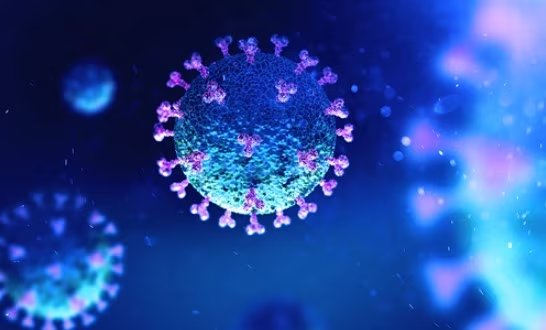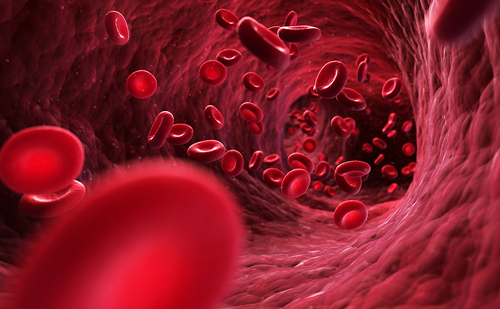 The COVID-19 pandemic accelerated the development of mRNA technologies, most notably with the creation of mRNA vaccines targeting SARS-CoV-2. While these vaccines helped control the pandemic, their potential may extend beyond infectious diseases, with growing interest in their potential application to cancer immunotherapy.
The COVID-19 pandemic accelerated the development of mRNA technologies, most notably with the creation of mRNA vaccines targeting SARS-CoV-2. While these vaccines helped control the pandemic, their potential may extend beyond infectious diseases, with growing interest in their potential application to cancer immunotherapy.
At the European Society for Medical Oncology (ESMO) annual meeting in September 2024, Adam J. Grippin (University of Texas MD Anderson Cancer Center, Houston, TX, USA) presented evidence suggesting that SARS-CoV-2 mRNA vaccines may enhance the effectiveness of immune checkpoint inhibitors (ICIs) in patients treated for non-small-cell lung cancer (NSCLC) and melanoma.1 The findings were based on a retrospective study of patients with stage III/IV NSCLC (n=2,406) and metastatic melanoma (n=757), who had biopsy specimens collected from August 2019 to August 2023. An additional ’tissue agnostic’ cohort (n=5,524) with pathology reports mentioning ‘PD-L1’ (programmed death ligand 1) from August 2020 to November 2023 was also analyzed.1
Receiving a SARS-CoV-2 mRNA vaccine within 100 days prior to biopsy was linked to a 23% increase in the mean tumour proportion score (TPS) of PD-L1 in patients with NSCLC (31% versus 26%, p=0.029) and a 28% rise in the frequency of TPS >50% (36% versus 28%, p=0.049).1 In the tissue-agnostic cohort, mean TPS increased by 55% (14% versus 8.9%, p=0.029). Among patients with NSCLC who received ICIs, vaccination within 100 days of ICI initiation was associated with a doubling of both median overall survival (OS) (558 days versus 1,120 days) and 3-year OS rates (30.7% versus 57.2%, hazard ratio [HR] 0.57, 95% confidence interval [CI] 0.44–0.74, p<0.001). Conversely, SARS-CoV-2 mRNA vaccination had no effect on OS in patients with NSCLC not treated with ICIs. In the melanoma cohort, vaccination within 100 days of ICI initiation was associated with improved OS (HR 0.42, 95% CI 0.24–0.74, p=0.003), distant metastasis-free survival (HR 0.66, 95% CI 0.42–1.05, p=0.023), and progression-free survival (HR 0.64, 95% CI 0.44–0.92, p=0.022).
Speaking on the study’s limitations, Dr Grippen drew attention to the retrospective design of the study and the limited number of patients who had received an mRNA COVID-19 vaccine within 100 days of starting ICI treatment.2 He suggested that future work should include prospective validation of these findings.2
The investigators concluded that SARS-CoV-2 mRNA vaccines are linked to increased PD-L1 expression across various tumour histologies and enhanced survival in patients with metastatic melanoma and NSCLC who receive ICI treatment.
References
- Grippin AJ, Copling S, Kim A, et al. Association of SARS-CoV-2 mRNA vaccines with tumor PD-L1 expression and clinical responses to immune checkpoint blockade. Ann Oncol. 2024;35(Suppl.2):Abstr.995MO.
- Cancer Therapy Advisor. COVID-19 Vaccination Linked to Improved OS in Cancer Patients Treated With ICIs. 2024. Available at: www.cancertherapyadvisor.com/reports/covid-19-vaccination-linked-to-improved-os-in-cancer-patients-treated-with-icis/ (Last accessed 6 November 2024).
Disclosure: This article was created by the touchONCOLOGY team utilizing AI as an editorial tool (ChatGPT (GPT-4o) [Large language model]. https://chat.openai.com/chat.) The content was developed and edited by human editors. No funding was received in the publication of this article.
Cite: SARS-CoV-2 mRNA vaccination associated with increased survival in patients with lung cancer and melanoma treated with immune checkpoint inhibitors. touchONCOLOGY. 13 November, 2024.















